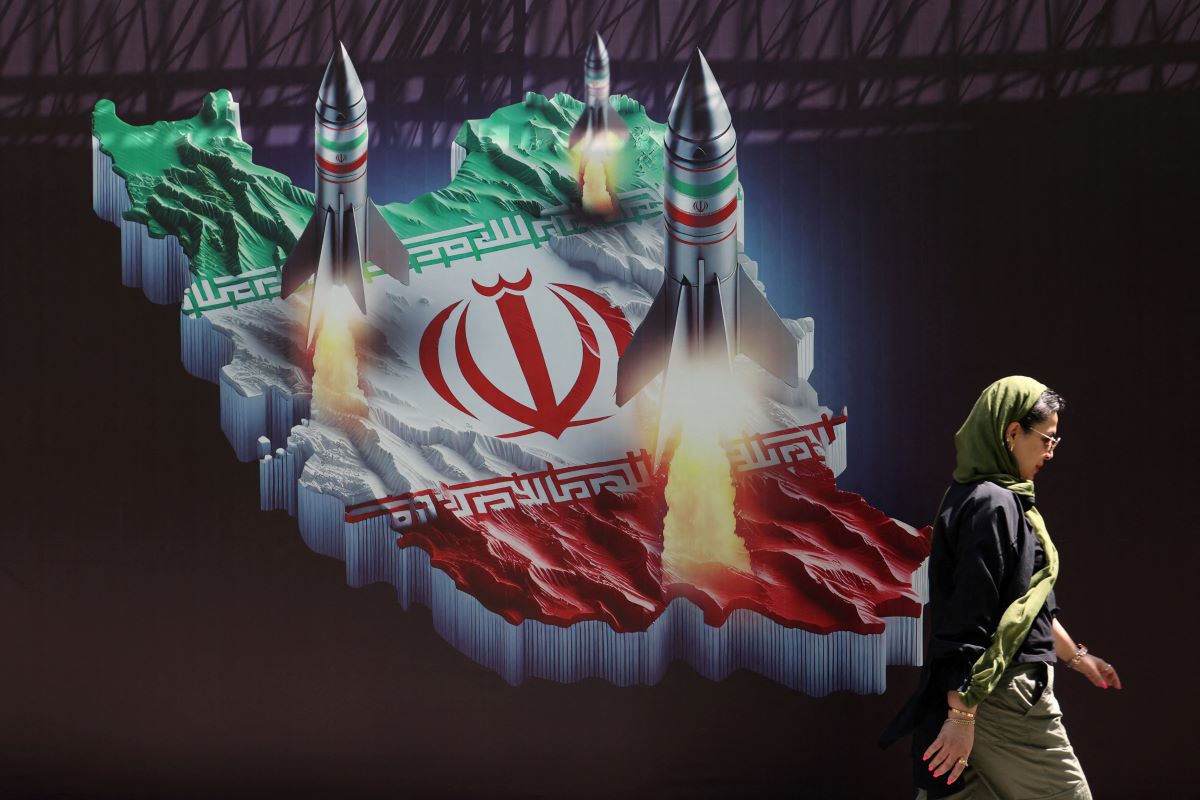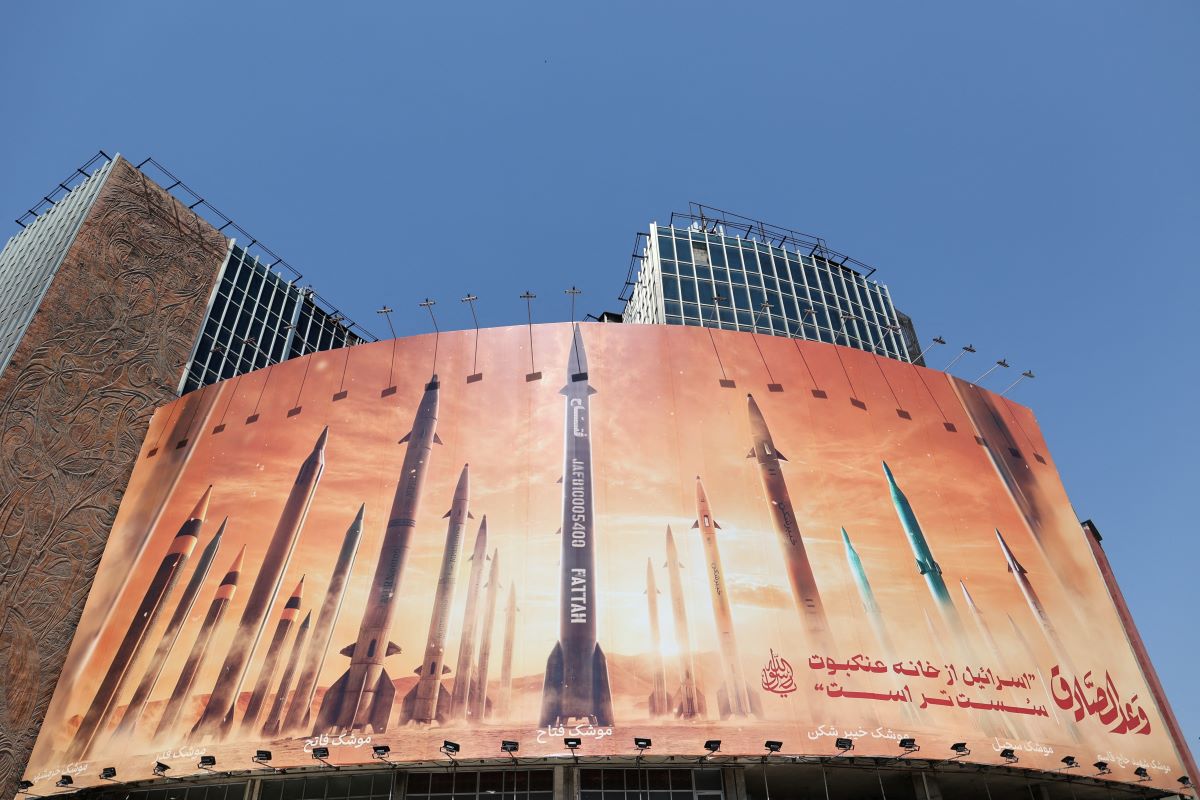
The Middle East looks like a “boiling cauldron” after the new data that emerged after Iran's missile and drone attack against Israel on the night of April 13 and the Israeli response by striking Iranian targets in Isfahan in the early hours of Friday (19.4). .24).
The Israeli attack on Isfahan came in response to the Iranian attack on Israel, which Tehran said was a response to the Israeli raid on the Iranian embassy in Damascus earlier this month.
According to The Guardian, there is now a complete reversal of the rules followed by Israel and Iran in their confrontation, which now seems to be acquiring more dangerous characteristics, as the threshold that could lead to general ignition has been crossed.
The strikes have highlighted a long-running shadow war between the two sides, the Guardian wrote, and also come against the backdrop of Iran's support for Hamas, whose attack on Israel on October 7 led to Israel's invasion of Gaza.
The limit of mutual fear and restraint has now been crossed. While many analysts and officials estimate that a limited Israeli strike on Iran might mean a return to the previous status quo, another reading expresses the disturbing possibility that this conflict is becoming more dynamic.
Another source of concern is the failure of the Israeli intelligence services over the past six months, whether in relation to the October 7 Hamas attack, or due to a miscalculation of how Iran would respond to the April 1 attack in Damascus. As the columnist commented, the same services and the same people are being called in to assess the situation.
Politically, it is difficult to see how such a limited response by Israel benefits Benjamin Netanyahu. For a leader who has focused so much on the threat posed by Iran and its nuclear program, many will view a very limited Israeli strike not as a sign of boldness and resolve, as Netanyahu would like, but rather as a sign of weakness.
Netanyahu's coalition ally and National Security Minister Itamar Ben Gvir, who is eyeing votes from the right wing of Netanyahu's Likud party, described the X attack as “weak.”
While early reactions on the Iranian side indicate that Tehran is seeking to describe Friday's incident as not serious enough to retaliate, the reasons that prompted it to launch 300 missiles and drones at Israel last weekend still remain.
What is clear is that both sides are playing with fire.
AFP: Why does Iran not want escalation?
Today's “thoughtful” Israeli attack against Iran and Tehran's reaction show that both sides can commit to stopping the escalation even though the situation is still explosive, according to estimates by analysts at the French Agency (Agence France-Presse).
The international community fears that decades of hostility between Israel and the Islamic Republic could turn into all-out war as the Israeli army continues its assault on Gaza following the October 7 attack on Israel by the Palestinian Islamist movement Hamas, which is supported by Tehran. .
According to American officials, quoted by several American television networks, the explosions that occurred near a military base in Khazhavaristan, in the center of the country, are linked to an Israeli attack on Iran in response to the Iranian strikes that occurred last weekend.
These new developments come at a time when Israel threatened to respond to the attack on its territory and despite warnings from the United States, its strong ally.
But Tehran today appeared to be downplaying the situation, saying that launching an attack without missiles and nuclear facilities would be safe.
He added: “It seems that we are at a moment when both sides are seeking to break out of the current cycle of escalation, as Israel launches a very limited attack to show that it is responding to Iranian strikes, and Tehran quickly downplays the importance of the incident so that this is not the case.” “We are obligated to respond,” says Julian Barnes Dicey of the European Council on Foreign Relations.
Hosni Abidi, of the Geneva-based Center for Studies and Research for the Arab and Mediterranean World, for his part, highlights the almost absolute “similarity” of the attacks launched by Iran and Israel, which may lead them to estimate that they can stay there.
The report stated that “the Israeli strike hit an air base that was being used as a launching pad for missiles and drones against Israel” last week. “The Israelis were keen not to harm important nuclear sites located in the same province in Isfahan.”
It is a position to appease Tehran, which “has no interest in continuing this crisis,” because its top priority is to continue its nuclear program, which is a condition for the regime’s survival, according to the Middle East expert’s estimates.
In its attack on Israel last weekend, Iran was also able to measure “Israel’s air defense capability” as an “unprecedented” mobilization of the United States, as the Western camp joined by Jordan noted more broadly.
Iran launched more than 350 missiles – missiles and drones – towards Israel, almost all of which were intercepted.
Despite the objective evidence calling for a halt to the escalation, experts remain extremely cautious, given the uncertainty surrounding Israel's intentions.
“For me, Israel is pursuing a logic of escalation and not at all a logic of de-escalation,” says Anis Levallois of the Institute for Research and Studies on the Mediterranean and the Middle East.
“Attacking Iran is a way to get much greater support than what happened in the case of Gaza,” she says, referring to the fact that Arab countries see Tehran and its nuclear program as a factor of regional destabilization in and of itself.
However, the Israelis chose to respond to the Tehran attack without heeding Washington's warnings, he points out, highlighting the unpredictable nature of Israeli Prime Minister Benjamin Netanyahu, who appears immune to US pressure.
“There is what is clear and logical, but on the field, we have a player (…) making decisions that seem to conflict with Israel’s interests,” says Anis Levallois. Israel has also intensified its raids in southern Lebanon against Lebanese Hezbollah – which Tehran supports – which may prompt the latter to “cleanse” the shame of Iran, whose officials Israel recently killed.
“The overall regional situation remains very heated, with the confrontation between these two countries becoming more urgent than ever,” says Julian Barnes-Dacey.
In a less pessimistic scenario, the United States might have been able to accept that Israel would retaliate in exchange for staying there, says Agnes Lavalois. He points out that “the risks are very high” for the United States, the Gulf states and Israel itself.

“Hipster-friendly coffee fanatic. Subtly charming bacon advocate. Friend of animals everywhere.”






More Stories
F-16 crashes in Ukraine – pilot dies due to his own error
Namibia plans to kill more than 700 wild animals to feed starving population
Endurance test for EU-Turkey relations and Ankara with Greece and Cyprus